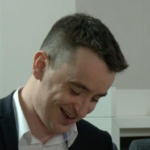The conveyor belt of technology releases and developments move like lightning. As many of us excitedly embrace the IoT, smartphones, artificial intelligence and more, members of the elderly community who have not grown up with such advanced technology are at risk of being overlooked. Of course, the elderly are not prevented from purchasing smart devices, but the adjustment to such technology can be quite a feat for the older generations of society. Ian Hosking from the University of Cambridge’s engineering department has said, “There are some very tech-savvy older people around, but there is clearly a large cohort of people who feel excluded by technology. They find it a bit impenetrable”. Age UK found that only 40% of the people 65 and over in the UK in 2010 had never even used the internet.
Some initiatives have already been put in place to help elderly people adjust to the widespread use of technology, as to be left unconnected to Wi-fi, without access to the enormous source of knowledge that huge numbers of people rely on (the Internet), and without the devices that can aid communication with loved ones, it is an isolated world to live in. It is not that older people do not have the means to obtain the technology, although some do not, but rather that they were not brought up in a world where it existed or was necessary to the extent it is now. Whereas, the youth of today have learnt to type on laptops from as early as 4-year-old in school, and approximately 84% of children aged between 11 and 12 have a smartphone (according to a 2018 Childwise report).
Age UK’s ‘itea and biscuits week’ help older people learn more about technology and how to use the internet through technology taster sessions. Such campaigns give elderly people opportunities to try out different forms of technology in a low-pressure environment with friendly volunteers to help them. Another example of an initiative connecting older people with technology is Age Concern Edinburgh’s Moose in the Hoose Project. The project aims to show the benefits of computers and the internet to elderly people living in care homes and/or spending time in day centres in Edinburgh. The service consists of trained volunteers visiting to care homes and day centres on a weekly basis to help the elderly learn to use technology.
How technology can help the elderly
There is a multitude of reasons for elderly people to use technology to help themselves. Not only do computer and smartphone application like video messaging services help the immobile and lonely see and talk to their loved ones, but smart gadgets can help older people improve their quality of life.
IoT devices, whereby household items can communicate with one another via wifi, could be of particular use for older people, as they can ask their home-bot to search the web, make phone calls, add dates to a calendar, and much more. This helps people with limited or no mobility as they can complete tasks through a voice-activated device rather than having to write, operate a phone or move from their seat.
Beyond convenience, advanced technology can also aid more vital aspects of life. Voice-activated bots can help you with your medical needs by phoning a doctor or requesting an ambulance, and apps can remind you to take your medication (a particularly useful tool for those who have Alzheimer’s). Although elderly care robotics is quite a new field and have not been implemented all that much as of yet, there is excellent potential for robots to offer medical assistant and companionship.
An Israeli start-up called Intuition robotics announced their companion for the elderly, ELLI.Q, which is due for release later this year. The robot functions through machine learning and is designed to provide elderly people with activities entertain them to help combat inactivity and loneliness. The bot also monitors the user’s environment in order to inform them of risks and is intended to focus closely on their wellbeing. The robot can organise transport for them and remind them of plans (appointments, social events etc). Intuition robotics secured over $20 million in venture funding in 2017, with a $14 million investment from Toyota AI Ventures.
Final thoughts
With more technology being created for the elderly and more classes being held for older people to learn how to use it, not only will their lives be enhanced by the increased communication possibilities and the medical assistance of bots, but with the correct and thorough education in the operation and risks of such technology, elderly people will be able to use it to its full potential with knowledge of cyber security and how to stay safe online. In Britain, such technology could help combat the enormous and unfulfilled demand for elderly care and lifestyle improvements. Although this may seem like a risk to the jobs of carers, robots should not replace them (and most likely will never have the compassion necessary to do so) but should compliment care by allowing older people to be self-sufficient in the absence of their prime carer/s.
Andrew McLean is the Studio Director at Disruptive Live, a Compare the Cloud brand. He is an experienced leader in the technology industry, with a background in delivering innovative & engaging live events. Andrew has a wealth of experience in producing engaging content, from live shows and webinars to roundtables and panel discussions. He has a passion for helping businesses understand the latest trends and technologies, and how they can be applied to drive growth and innovation.




